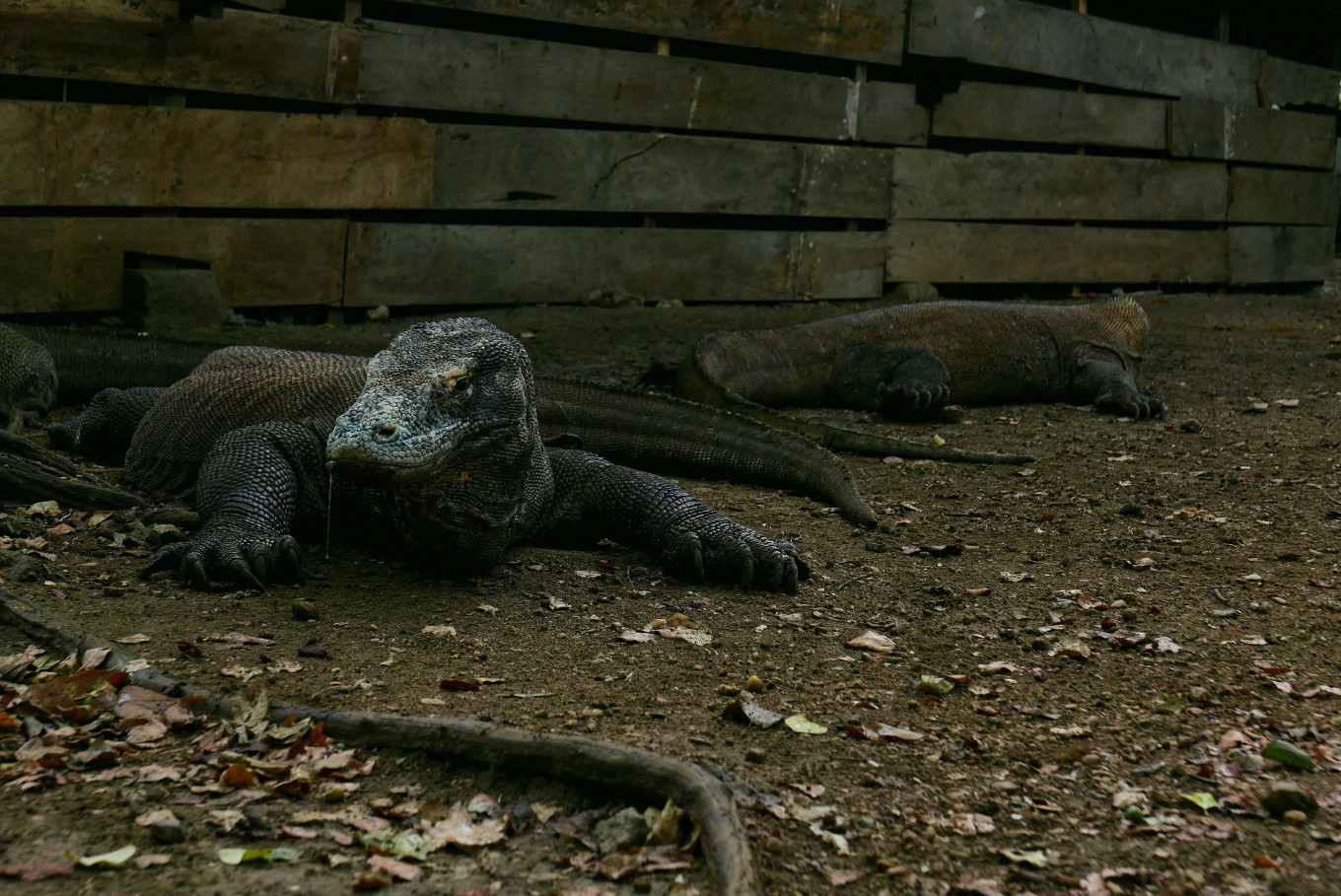Popular Reads
Top Results
Can't find what you're looking for?
View all search resultsPopular Reads
Top Results
Can't find what you're looking for?
View all search resultsNo 'Jurassic Park': NTT administration says Rinca Island project is ecotourism
Change text size
Gift Premium Articles
to Anyone
T
he East Nusa Tenggara administration has denied using the fictional dinosaur island "Jurassic Park" as inspiration behind the construction of a tourism project on the province's Rinca Island, home to the protected Komodo dragon.
“The concept of development on Rinca Island is based on ecotourism, not Jurassic Park,” NTT administration spokesman Marius Jelamu said on Tuesday.
The branding of Jurassic Park – derived from the popular Hollywood science fiction franchise of the same name – was first coined by Coordinating Maritime Affairs and Investment Minister Luhut Pandjaitan, who said in October last year that the tourist sites around Komodo Island would be built into a research center that could bolster the prosperity of the local community.
Architect Fania Hafila later uploaded an animated video of a construction plan titled “Jurassic Indonesia Tourism” on Instagram. The logo of the Public Works and Public Housing Ministry was reportedly displayed at the end of the video.
In September, architect Yori Antar from PT HAN AWAL, the company in charge of the Rinca Island development project design, used similar branding, saying the Jurassic tourism project was to facilitate the increasing number of visitors.
Marius said that the Rinca Island project would only be built on 5 hectares of the island's 20,000 hectares of land.
The project includes repairs to damaged infrastructure and facilities, including renovation of docks along the island's coastline, an elevated deck for Komodo dragon viewing, a ranger building, an information center, restaurants, and homestays and resorts.
“Later, visitors will not need to see Komodo dragons up close. Technology will be prepared so that they can see the dragons from afar in the ranger’s room,” said Marius.
Read also: Komodo dragon's 'Tiananmen moment' sparks concern over prime tourism project
With the new facilities, the government hopes Rinca Island will develop into a new economic center akin to Labuan Bajo, which has become a “super-premium” tourist destination.
The development was also part of preparations to welcome thousands of people during the ASEAN Summit and the G20 meeting in 2023, as Labuan Bajo was expected to host the events, Marius said.
He gave an assurance that local community members would be involved in the project, as opposed to being relocated from Rinca Island.
The NTT administration has requested the Environment and Forestry Ministry and the Public Works and Housing Ministry to pay close attention to preserving the Komodo dragon population in the area.
“There are still thousands of hectares available for the conservation of 1,300 Komodo dragons on Rinca Island,” Marius said as quoted by tempo.co.
Concerns over the safety of the endangered Komodo dragon mounted recently after a photo of a Komodo dragon facing a project truck on the island went viral on social media.
Director of the Indonesian Forum for the Environment (Walhi) of NTT, Umbu Wulang, said his forum disagreed with the project because it was not based on science and instead focused on branding for business purposes.
Umbu feared the project would cause harm to the animals endemic to the region and affect the dynamics of their ecosystem, especially Loh Buaya, the main habitat for many species.
“Walhi NTT rejects large-scale infrastructure development and greed for land in the name of tourism investments,” Umbu said, adding that the government should instead encourage community-based tourism development that was environmentally friendly and sustainable. (syk)









